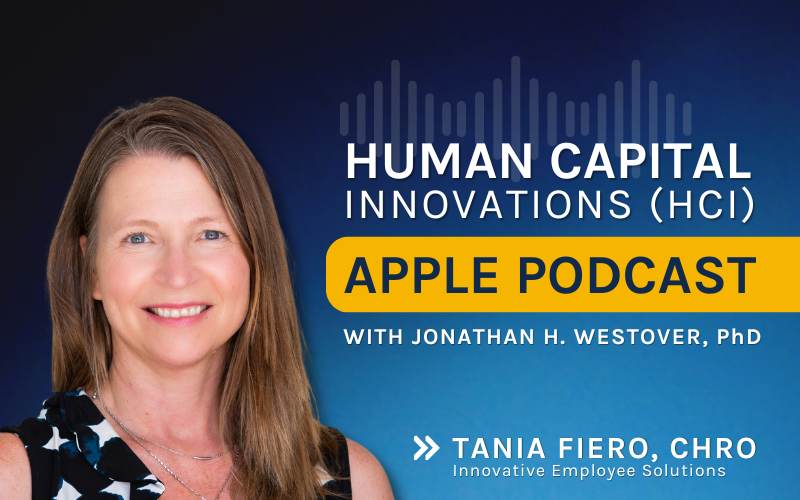Every day, new articles and information emerge regarding the Great Resignation and the sheer number of people planning to switch jobs in the near future. At last count, 55% of adults were planning to make a move in the coming year, and 28% said they felt a job hunt coming on, according to Bankrate’s August 2021 Job Seeker Survey. That represents a lot of people, but what many articles fail to mention is that career goals differ by generation.
Although 77% of Gen Zers are on the hunt for better employment opportunities, only 33% of Baby Boomers are making similar moves. This is an important distinction, as there are clear generational preferences that employers should be aware of when recruiting job seekers.
Adding even greater complexity to attracting, engaging, and retaining top talent are discrepancies found between the four types of job seekers: active, passive, undecided, and current employees.
Active job seekers will likely find your open position while searching a career site, but their desire for action means you will have to compete with other interviews and job offers to secure their attention.
Passive job seekers, on the other hand, are open to a good opportunity should one come along. When approaching them, you’re not competing against other recruiters for attention; rather, you’re promoting your employer brand so that passive seekers are already interested in your company when an opportunity arises.
As for the undecided job seeker, you will find them mentally ready to make a change — and perhaps monitoring the job landscape — but not quite committed to the actual job search. These candidates might be swayed by an unexpected culture post about your company on TikTok or Instagram or by networking and employee referrals.
Last are current employees, who might be either passive or active job seekers. These are the overlooked workers HR might not consider for job openings for fear of moving them from their current positions or for lack of information about their skills and competencies. But by not being allowed to grow or change, they have become targets for your competitors who are also looking for great talent.
Knowing this, you need to implement HR recruitment processes to not only meet the expectations of different generations, but also anticipate the needs of the four types of job seekers. By being proactive, you can establish your employer brand early and recruit talented individuals who are more likely to stay.
How to recruit and retain Gen Z
When recruiting Gen Z, it’s best to avoid a social media-only strategy, as it’s their least preferred channel for employer communication. Email is a good supplement to social media, as 87% of Gen Zers say this is how employers should reach them. Gen Z job seekers are also more likely to search for a job opportunity on your company website, on job search sites, and through career services. If your HR recruitment process has put any one of these channels on the back burner, the time has come to consider promoting via these outlets, as well as social media.
Beyond that, attracting, engaging, and retaining top talent within Gen Z comes down to flexibility. Flexible work arrangements have quickly become a top priority for 62% of Gen Z job seekers, Bankrate’s survey found. That cohort is also looking for more flexibility in the HR recruitment process, including where they find the job opportunity, how they apply for the job, and the interview process in general. Recruiting Gen Z is all about meeting this segment of talent where they are rather than expecting them to come to you.
On top of that,the Gen Z job seeker expects the HR onboarding process to be technologically effortless. They’re digital natives, after all, and 58% of Gen Zers feel averse to going more than four hours without internet access. They rely on technology much more than any other generation, and there’s now an expectation that onboarding will be as easy and intuitive as shopping on Amazon.
To meet this demand, make sure that on day one, your new hire has a laptop, keyboard, and monitor already configured with their email, company intranet, and any software they will need. If you provide a short training video, their digital prowess will allow them to hit the ground running.
Onboarding effectively is important not only for the employee, but also for your organization. Don’t ruin a good candidate experience in recruitment by leaving anything to chance. Coordinating the training, arranging all the paperwork, and even holding a “meet and greet” will do wonders for your recruitment and retention efforts.
Meeting the expectations of job seekers at every turn
Job seekers will always face sorting through hundreds or thousands of open positions when deciding where and how to work. With so many options, it’s important to focus on career development to make your job opening stand apart from the rest.
Regardless of their generations or their part-time, contingent, or full-time job status, new hires expect environments conducive to learning and opportunities for growth in their skills. To accommodate these needs, look for ways to offer professional development to those not working 9 to 5 — you never know who might eventually come into the full-time fold.
To attract, engage, and retain top talent, you should be leveraging technology to make it easier for hires to learn their jobs, gain new skills, and fulfill their obligations. Technology will also make it much easier for you, as an employer, to personalize the candidate journey and offer the preferred candidate experience in recruitment that Gen Z job seekers expect from potential employers. Get it right, and the applications will come in at record numbers.
Gen Z job seekers have different expectations for the hiring and onboarding process. Learn more about how to recruit and retain these workers by subscribing to the monthly IES newsletter or requesting a proposal today!
Written by: Tania Fiero, Chief Human Resources Officer at IES
Tania Fiero is the chief human resources officer at Innovative Employee Solutions (IES), a leading global employer of record in more than 150 countries that specializes in payrolling and contractor management services for today’s contingent workforce. Founded in 1974 in San Diego, IES has grown into one of the city’s largest women-owned businesses and has been named one of its “Best Places to Work” for 10 years in a row.






